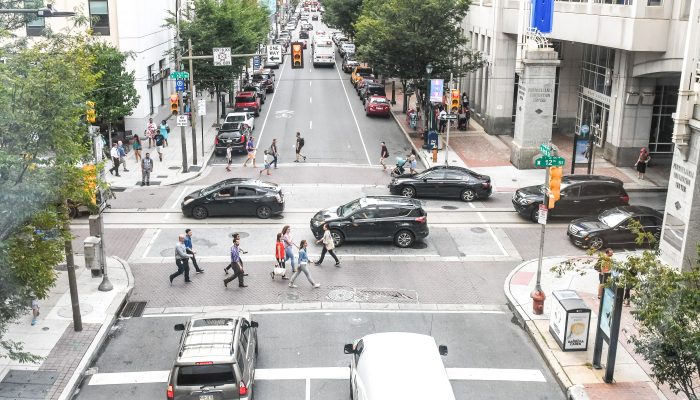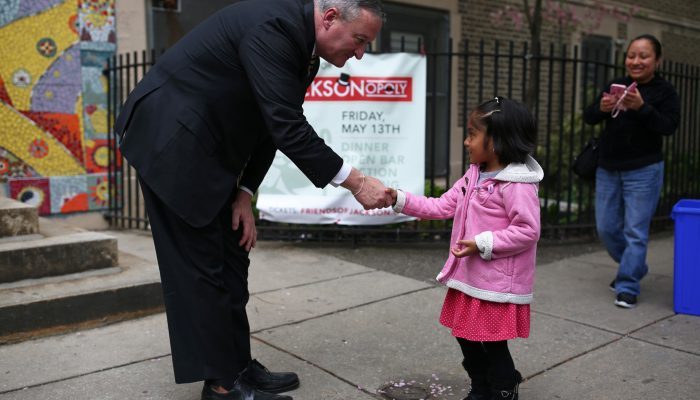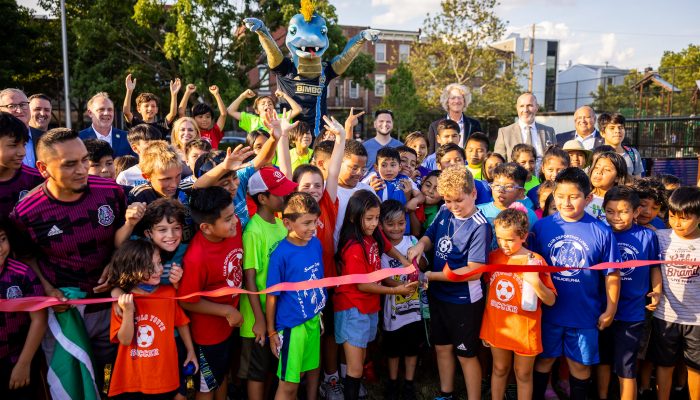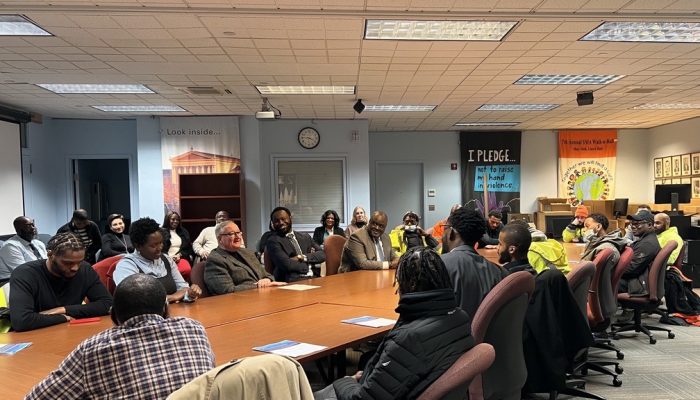Just two months ago, I was honored to be sworn in to a second term as Mayor. On that day, I presented the top priorities of our second term—and the plans we have to address them.
Our proposed budget for fiscal year 2021 and our Five-Year Financial and Strategic Plan represents our commitment to tackling Philadelphia’s biggest challenges.
A few of the highlights from this year’s FY21 budget proposal:
- $45 million more for the School District of Philadelphia
- $18.3 million more for the Community College of Philadelphia
- $10.5 million to bring street sweeping to more neighborhoods
I’m also pleased to announce that this budget calls for:
- No tax rate increases
- Small cuts to the wage and business tax rates
- Setting funds aside to prepare for a possible economic downturn.
Our administration has also made its first-ever contributions to the City’s Rainy Day Fund, and set aside money for potential cuts in state and federal funding. The proposed budget leaves unspent about $316 million, or 6% of overall city spending.
Our goal: Increase equity and opportunity so all Philadelphians, regardless of what corner of the city they live in, can reach their full potential.
Addressing our city’s gun violence
We must reduce and prevent the gun violence that’s been tearing our communities apart. With an additional $8 million a year, we’ll implement evidence-based and community-informed strategies as part of the Philadelphia Roadmap for Safer Communities.
The budget also calls for $5.7 million for the staff and technology needed to expand Operation Pinpoint, which is starting to show positive results in the target areas, including a 27% decrease in homicides in those areas.
We will expand the Community Crisis Intervention Program, fund a rapid response team, continue making targeted community investment grants, expand youth employment programs, and reduce neighborhood blight. We will also expand use of body-worn cameras, hire public safety enforcement officers, and improve training on racial bias.
We also plan to invest $2 million in a new transitional jobs program that has successfully reduced violence in other major cities. Since most of our crimes stem from poverty and lack of opportunity, we will provide job training and jobs to residents who are at the highest risk of being involved in violence.
Expanding access to quality education
We’re committed to reducing poverty, improving educational attainment, and preparing a highly skilled workforce. In addition to providing our K-12 schools with necessary funding, we will make the Community College of Philadelphia a school of choice by making it more affordable and removing barriers to student success.
Our Five-Year Plan includes a major investment in the Community College of Philadelphia: $63 million for the game-changing Octavius Catto Scholarship. The program has a simple but vital goal—to significantly increase graduation rates for full-time CCP students by closing the gap between other financial aid and the remaining tuition balance.
Repairing our roads and designing safer streets
Both this Five-Year Plan and our Capital Program reflect our continued commitment to repairing the conditions of our roadways. We’ll invest $240 million in street paving alone over six years.
We’ll also continue designing safer streets that promote zero fatalities and put people first, and we’ll deliver on our goal of creating 40 miles of protected bike lanes by 2025.
Learn more about how this budget proposal supports cleaner and safer streets.
Supporting neighborhoods
Our plan will help build inclusive and resilient neighborhoods. The new PHLRentAssist program invests nearly $33 million over five years to stabilize households—focusing on youth aging out of foster care, low-income working families, and individuals with disabilities. And our historic investment in housing affordability, homeless services, and home ownership includes $115 million over seven years for the Housing Trust Fund.
We’re also proposing new funding to support wage increases for the Department of Human Services’ youth summer jobs program, on top of the nearly $8 million we invest annually in WorkReady. An additional $1 million will enable Parks and Recreation to embark on an ambitious, system-wide effort to provide higher-quality programs and better serve communities in need.
Enhancing government services
We plan to invest $300 million in capital funding to modernize our government’s services, including streamlining and integrating business processes across finance, procurement, and other departments.
The Office of Innovation and Technology will receive $22.5 million for network infrastructure improvements and other applications used by departments. Several departments will receive funding to support the transition from antiquated IT infrastructure to modern systems that offer efficiency and customer service improvements, like the new Integrated Tax System in the Department of Revenue.
Another major area that we are examining is the practice of administering fines and fees across the government, which too often comes with unintended consequences. Fines and fees are mostly issued to recoup costs of service and curb problematic behavior. However until now, they have mostly been enacted without regard for one’s ability to pay.
It’s time to reconsider practices where fines and fees fail to meet their intended goal or even worse — cause harm. This disproportionately impacts low-income communities and people of color.
Over the past four years we’ve had the courage to tackle tough issues head on—and we’ve made progress. Yet, despite this success, we know that huge challenges remain. We strive to balance immediate needs in our community with building fiscal health and resilience, so that we can continue this progress in the years to come.
I look forward to working with City Council, partners, stakeholders, and residents to make Philadelphia safer, cleaner, and healthier and to give our children a chance to achieve their dreams.




